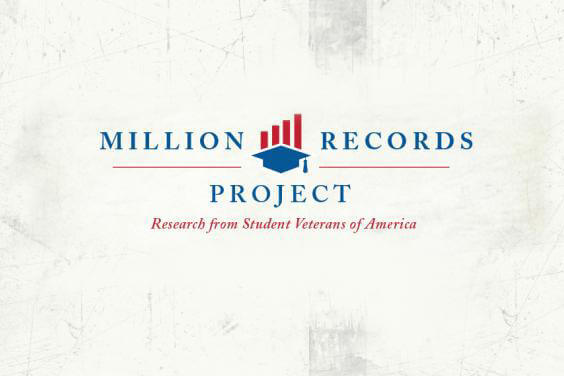That veterans struggle after going from the military into a scholastic environment is a point of view not shared by Student Veterans of America (SVA). And data seems to back up their stance.
On March 24, SVA representatives released the results of their Million Records Project, a joint study between SVA, the Department of Veterans Affairs (VA) and the National Student Clearinghouse (NSC). The three entities matched two sets of data: a randomly selected sample of approximately 1 million Montgomery and Post-9/11 GI Bill veteran education beneficiary records from 2002 to 2010, and U.S. student postsecondary enrollment and completion records collected by the NSC.
Of those users analyzed, 51.7 percent have received a postsecondary degree or certificate, a completion rate similar to traditional college students and surpassing the rate of other nontraditional students.
"Americans have invested substantial dollars in giving our veterans an opportunity to further their education, and this report shows many positive signs that they are doing just that," said Wayne Robinson, SVA president and CEO. "The majority of student veterans accessing their GI Bill benefits are completing degrees and showing unparalleled determination to do so, despite many unique barriers. A single deployment can interrupt a student veteran's education for at least nine to 13 months, but they're returning to the classroom and completing."
SVA partnered with the VA and the NSC to gather and analyze the data. Their work indicated that although many take longer than traditional students to graduate, most student veterans complete their initial studies and often earn additional higher level degrees as well. Their delayed time-to-completion is due in large part to the unique challenges facing student veterans who are atypical of traditional college students, including sometimes taking a break from their studies to serve in the military.
"We have validated that veterans are motivated," said Curtis Coy, VA's deputy undersecretary for Economic Opportunity. "They're focused and, regardless of the odds, continue to persist and achieve. The investment of these veterans is critical to the economic success of this country."
The report also shows the majority of students complete a bachelor's degree within four to six years and associate degrees within four. Many of these veterans enroll in college after high school graduation, withdraw to join the military, then re-enroll after military service.
Other veterans enroll in postsecondary institutions after they complete their military service; others earn college credit before, during and after military service but may need to repeat some coursework that was lost due to deployments.
"It is clear that veterans are persisting in their education and graduating at levels comparable to the general population," Robinson said. "They're pursuing high-demand degrees, making them highly attractive in today's job market. Based on these findings, Americans can now see the value of their smart investment in student veterans."





